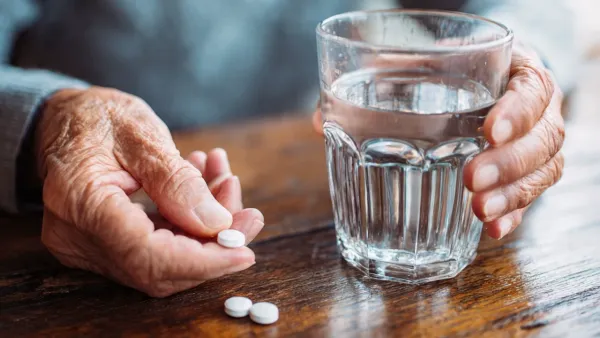Recently, doctors have emphasised the importance of drinking enough water with oral medicines to ensure better absorption, reduce irritation, and protect digestive health.
Most tablets and capsules should be taken with at least 200-250 ml of water, roughly a full glass. This simple habit not only prevents discomfort but also helps medicines do their job properly.
WHY WATER MATTERS WHEN TAKING MEDICINES
"When we swallow a tablet or capsule, it passes through the food pipe and into the stomach before being absorbed into the bloodstream. Without enough water, medicines can stick to the lining of the throat, cause irritation, or take longer to dissolve," explained Dr C.C. Nair, Internal Medicine Specialist at Lilavati Hospital & Research Centre.
Adequate water ensures smooth passage, quicker dissolution, and better absorption of the medicine. It also lowers the risk of ulcers and irritation in the oesophagus.
HOW MUCH WATER IS ENOUGH?
Most experts agree that each pill should be taken with one full glass of water (200-250 ml). A few sips are not enough, especially for larger tablets. Drinking sufficient water helps medicines move easily to the stomach and dissolve faster, improving both safety and efficacy.
"It's important to remember that every pill should ideally be swallowed with a full glass of water. This prevents food pipe irritation, lowers the risk of ulcers, and ensures proper absorption," said Dr Manisha Arora, Director - Internal Medicine at CK Birla Hospital (R), Delhi.
MEDICINES THAT NEED EXTRA CARE
Some drugs require more caution than others.
- Antibiotics: Must be taken with plenty of water to prevent stomach upset and kidney strain.
- Painkillers (NSAIDs): Adequate water helps reduce stomach irritation.
- Iron supplements: Best absorbed with water or juice, but not with milk, as calcium blocks absorption.
- Thyroid medicine: Should be taken on an empty stomach with only water, no tea or coffee.
COMMON MISTAKES TO AVOID
Many people make small but harmful mistakes when taking medicine:
- Swallowing pills with tea, coffee, or juice can interfere with absorption.
- Lying down immediately after taking medicine may cause it to get stuck in the food pipe.
"It is advisable to wait at least 30 minutes before lying down after taking the medicine," added Dr Arora. "Lying down immediately can cause reflux and irritation. Also, avoid very cold water; room-temperature or slightly warm water works better for dissolving medicines."
While water with medicines is crucial, overall hydration also supports digestion, nutrient absorption, and bowel health. However, people with conditions like chronic kidney disease may have fluid restrictions, so they must always follow their doctor's guidance.
For most healthy individuals, the rule is simple: take each pill with a full glass of water unless your doctor advises otherwise.
Taking medicines with the right amount of water may seem like a small detail, but it is essential for safety and effectiveness. As Dr Nair summed up: "Except when directed otherwise by your doctor, always take your medicine with sufficient water to maximise efficacy and protect your digestive health."
